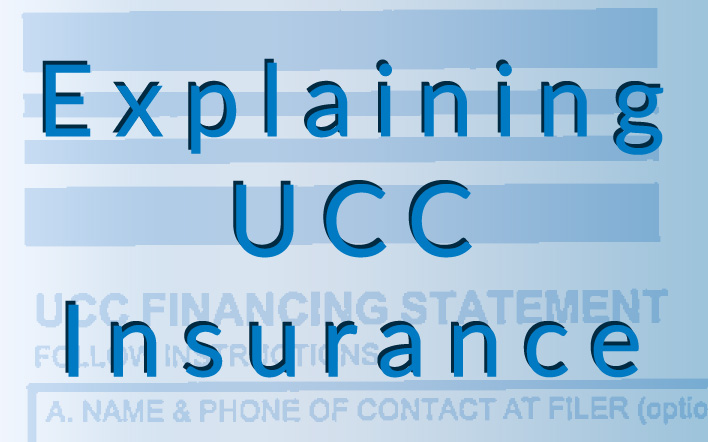Estimated reading time: 4 minutes

Introduction
Explaining UCC insurance can be a bit confusing for anyone involved, we here at Landmark Abstract are here to help! Different filings may fall under the UCC umbrella, but we are going to be focusing on what is considered a “fixture filing.” (Are the acronyms and weird words confusing you already?) Don’t worry, we will explain those terms and tell you what you need to know.
What Does UCC Stand For?
UCC Stands for Uniform Commercial Code. All fifty States adopted the Uniform Commercial Code for ease of business transactions. There are different Articles under this law, each dealing with different provisions and types of transactions covered. But, we’re going to be explaining what’s in Article 9: Secured Transactions.
What Is UCC Insurance?
UCC insurance covers attachments and the security interest under the Uniform Commercial Code. That is our basic explanation of UCC insurance. It covers things like equipment and inventory. And, just like with title insurance, UCC insurance has two main types: A Lender’s Policy and a Buyer’s Policy.
First, the Lender’s Policy insures the, well, the lender, or lienholder. The lender is also known as the “secured party.” Next, the Buyer’s Policy insures the actual personal property.
What Is UCC Insurance Used For?
Basically, UCC insurance is used to protect the fixtures on your home. Think big things that can’t be moved, like solar panels. But, first, you may be asking what defines a fixture. We will be explaining this part about UCC insurance right now!
Explaining what is a Fixture Filings
A fixture is something that is attached to real property. (Think of the word “affixed.”) UCC Fixture Filing finance fixtures. Your filing is also called a “secured transaction.”
Next, what could be a fixture? Here are four great criteria:
- How is something attached to property?
- How easy is it to remove from the property?
- What are the intentions for the involved parties?
- What expectations do third parties have with this fixture?
What does UCC Insurance Cover?
UCC insurance typically covers attachments in real property and the security interest of lenders. Ok, so we get the part where you are paying money back to a lender/secured party, right? Now, exactly what IS “an attachment in real property”? Here’s a few.
- Solar Panels
- Restaurant equipment
- Boilers
- Furnaces
Who Needs UCC Insurance?
Both residential customers and commercial customers can benefit from UCC insurance for fixtures. Upgrading your home or business? Check to see if you will need a UCC, and if you need UCC insurance, too.
Residential Customers
Residential customers find themselves in need of UCC filings and insurance because of the growing popularity of solar panels. In fact, many homeowners decided to install solar panels and finance them using a UCC secured transaction.
Commercial Customers
For example, commercial customers need UCC insurance to insure fixtures going into a building project. Kitchen systems, boilers, and even cow milking equipment can be covered by UCC fixture filings. In addition, commercial customers are more likely to add fixtures to property.
Conclusion
Explaining UCC insurance doesn’t have to be hard, and the same is for understanding it. UCC insurance is a which is a BIG DEAL because it protects YOUR big project, investment, and business! Are you working towards a project that will require you to get a UCC? Contact us! Oh, we have a great handout that explains UCC insurance further.
To conclude, there’s a lot more we can cover under the three letters “UCC”! We want to give you an overview of what you may encounter and to encourage you to insure that investment if it’s in your future.

